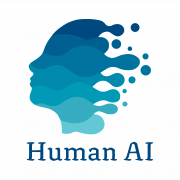Innovation in educational assessments
Social and emotional skills in times of AI
The recent OECD webinar, “Innovations in Measuring Social and Emotional Skills and What AI Will Bring Next,” brought together experts from various fields to explore advanced methods and emerging technologies that are revolutionizing educational assessment.
Moderated by Daniel Katarino da Silva and Adriano Larini, part of the OECD’s Social and Emotional Skills team, the seminar featured Rose Luckin, Professor Emeritus at University College London and a leading expert in AI and education; Clemens Lechner, Product Director at Jam Technology and specialist in psychological assessment; and Alan Morgan, Senior Advisor at the Templeton Foundation, with expertise in development studies and social policy.
The Importance of Assessing Social and Emotional Skills
The webinar began with an introduction by Daniel Katarino da Silva, who emphasized the need for rigorous measurement of social and emotional skills to identify students’ strengths and challenges. Assessing these skills is crucial for several reasons:
- Identifying Strengths and Challenges: Understanding areas where students excel and where they require additional support.
- Implementing Effective Interventions: Designing tailored programs to meet the specific needs of each student.
- Improving Pedagogical Practices: Providing valuable data to help educators enhance their teaching methods.
- Holistic Student Development: Promoting an educational approach that focuses on personal and social growth alongside academic achievement.
“Measuring social and emotional skills is essential for gaining the insights necessary to understand students’ strengths and challenges. Only through rigorous, high-quality measurement can we identify their needs and ensure that any social and emotional interventions implemented in schools are truly effective,” said Katarino da Silva. Such assessments are key to preparing students for real-world challenges, where social and emotional skills are as vital as cognitive ones.
Emerging Technologies in Educational Assessment
- Biometric and Biophysiological Data
- Description: Tracks biological and physiological data, such as heart rate and eye movements.
- Advantages: Offers direct insights into emotional states with less bias from participant awareness.
- Challenges: Complexity in interpretation and susceptibility to external factors.
- Virtual Reality (VR) and Augmented Reality (AR)
- Description: Immersive environments and overlays of digital information onto the real world.
- Advantages: High levels of engagement and immersion, enhancing data collection.
- Challenges: Cost and scalability in large-scale implementations.
- Artificial Intelligence (AI)
- Description: Uses algorithms to analyze communication, facial expressions, and body language.
- Advantages: Provides rapid, precise analysis of large data sets.
- Challenges: Cultural biases and the need for robust validation.
“AI technologies for assessing social and emotional skills employ complex algorithms to analyze verbal and written communication, facial expressions, and body language to identify social signals and emotions.”
4. Digital Footprints and Video Game
- Description: Analyzes digital traces and decisions in video games to infer skills and personality traits.
- Advantages: Cost-effective and highly engaging for students.
- Challenges: Requires further research and validation for classroom applications.
“Recent video games with narrative and choice-based gameplay allow players to make impactful decisions, providing detailed behavioral data for assessment.”
Ethical Challenges
“Transparency and data protection are crucial when integrating AI into education,” noted Rose Luckin of University College London.
Panelists highlighted the importance of addressing ethical concerns related to AI and data protection. Luckin stressed the need for careful design of AI tools to ensure reliability and privacy: “We must ensure that the data used to train these tools is unbiased and representative of the students whose skills we are assessing.”
Clemens Lechner emphasized the need for transparency and validation of these tools: “Transparency is key. Students, their parents, and other stakeholders need to know the research behind the assessments and the validation status of the tools.”
Future Perspectives in Educational Assessment
“We look forward to more research and validation to ensure these technologies can be effectively implemented in classrooms,”
Clemens Lechner of Jam Technology.
The future of educational assessment looks promising with these technological advances. However, further studies and validations are necessary to ensure their effectiveness and accuracy. “It is crucial that these assessments remain aligned with the concept of social-emotional learning and are primarily used as formative assessments rather than summative ones,” Lechner added.
Rose Luckin also reflected on the societal acceptance of these technologies: “While emerging technologies hold great potential, we need to address societal concerns about privacy and ethical use of data to ensure successful adoption.”
Conclusion
The OECD webinar highlighted how innovation in educational assessment is transforming the measurement of social and emotional skills. From biometric data to artificial intelligence, these tools offer new ways to understand and enhance students’ abilities. However, adopting these technologies must be accompanied by careful consideration of ethical challenges, transparency, and data protection.
Discover innovation in social and emotional development assessment through HumanAI Tech.
Explore our educational innovation tool, designed to evaluate and foster socio-emotional skills reliably, objectively, and humanely using students’ natural language. Request a demo and uncover 35 soft skills with just a single text.






